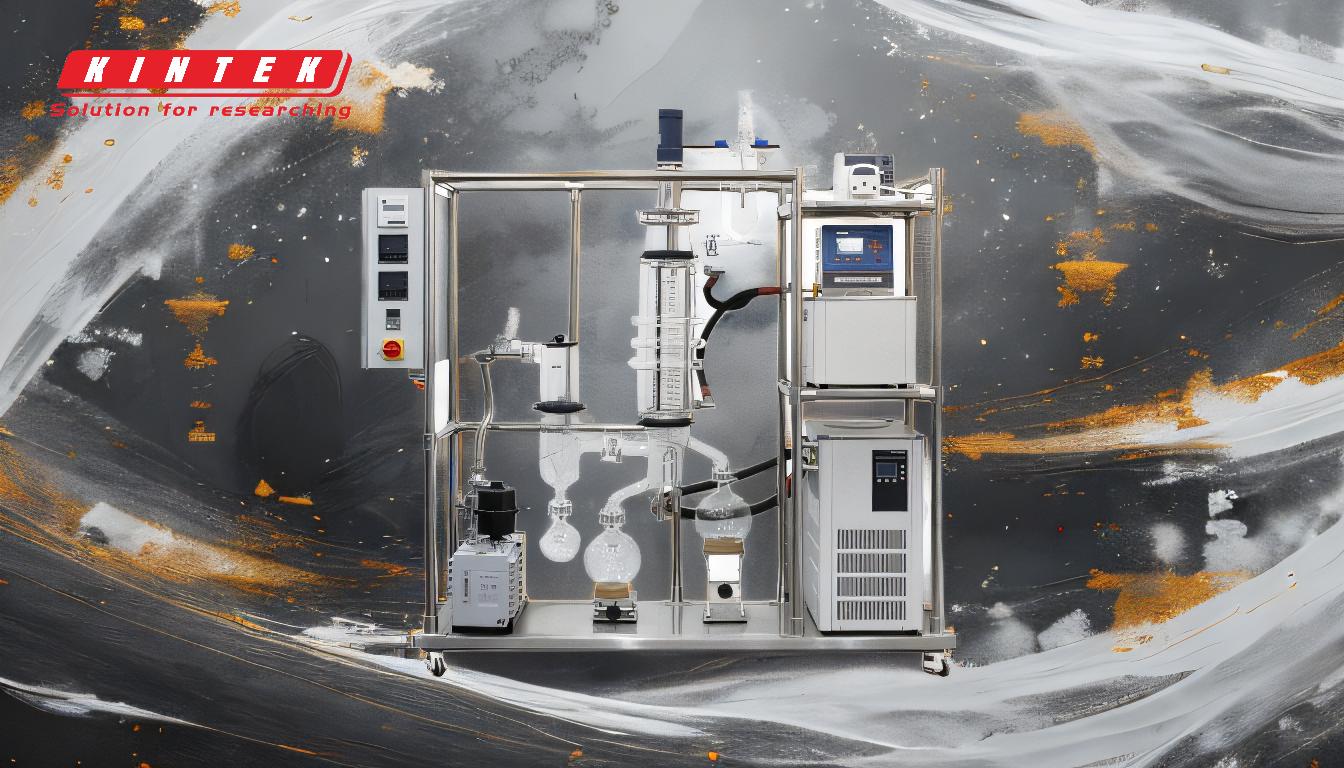Distillation under reduced pressure, also known as vacuum distillation, is a critical technique in chemistry and industrial processes, particularly for handling heat-sensitive substances. By lowering the pressure, the boiling point of the substance is reduced, allowing distillation to occur at milder temperatures. This prevents thermal degradation, oxidation, or decomposition of sensitive compounds. Additionally, reduced pressure enhances separation efficiency by eliminating back-pressure and making the boiling point dependent on molecular weight rather than vapor pressure. This method is widely used in applications such as molecular distillation and rotary evaporation, ensuring the preservation of compound integrity while achieving effective solvent removal or separation.
Key Points Explained:

-
Lower Boiling Points at Reduced Pressure
- When pressure is reduced, the boiling point of a substance decreases. This is because the vapor pressure required for boiling is achieved at a lower temperature.
- For example, water boils at 100°C at atmospheric pressure (1 atm), but under reduced pressure (e.g., 0.1 atm), it boils at around 46°C.
- This principle is crucial for distilling heat-sensitive compounds that would degrade or decompose at higher temperatures.
-
Advantages for Heat-Sensitive Substances
- Many organic compounds, pharmaceuticals, and natural products are sensitive to heat and can degrade, oxidize, or undergo unwanted side reactions at high temperatures.
- Vacuum distillation allows these substances to be processed at lower temperatures, preserving their chemical integrity and ensuring high yields of pure products.
- This is particularly important in industries like pharmaceuticals, where the stability of active ingredients is critical.
-
Enhanced Separation Efficiency
- In molecular distillation, reducing pressure eliminates back-pressure, which can hinder the separation of components.
- Under vacuum, the boiling point depends primarily on the molecular weight of the substance, allowing for more precise separation of compounds with similar boiling points.
- This is especially useful in the purification of high-boiling-point solvents or complex mixtures.
-
Prevention of Unwanted Side Reactions
- At atmospheric pressure, high temperatures required for distillation can lead to side reactions such as oxidation, polymerization, or decomposition.
- Rotary evaporation, a form of vacuum distillation, is widely used to remove solvents with high boiling points without exposing the sample to excessive heat.
- This ensures that the desired product remains chemically stable and uncontaminated.
-
Applications in Industrial and Laboratory Settings
- Molecular Distillation: Used for separating high-boiling-point compounds, such as essential oils, vitamins, and fatty acids, without thermal degradation.
- Rotary Evaporation: Commonly employed in laboratories for solvent removal, especially in organic synthesis and sample preparation.
- Pharmaceutical and Food Industries: Ensures the purity and stability of heat-sensitive active ingredients and flavor compounds.
-
Equipment and Setup
- A vacuum pump is essential for creating the reduced pressure environment required for vacuum distillation.
- The setup typically includes a distillation flask, condenser, vacuum pump, and collection vessel.
- Proper sealing and monitoring of pressure are critical to maintaining the desired conditions and achieving optimal results.
-
Energy Efficiency
- Operating at lower temperatures reduces energy consumption compared to traditional distillation methods that require high heat.
- This makes vacuum distillation a more sustainable and cost-effective option for large-scale industrial processes.
In summary, distillation under reduced pressure is a versatile and indispensable technique that enables the safe and efficient processing of heat-sensitive substances. By lowering the boiling point and preventing thermal degradation, it ensures high-quality separation and purification while minimizing energy consumption and unwanted side reactions.
Summary Table:
| Key Aspect | Details |
|---|---|
| Lower Boiling Points | Boiling point decreases under reduced pressure, e.g., water boils at 46°C at 0.1 atm. |
| Heat-Sensitive Compounds | Prevents degradation, oxidation, or decomposition of sensitive substances. |
| Separation Efficiency | Enhances separation by eliminating back-pressure and focusing on molecular weight. |
| Applications | Molecular distillation, rotary evaporation, pharmaceuticals, and food industries. |
| Energy Efficiency | Reduces energy consumption by operating at lower temperatures. |
Discover how vacuum distillation can optimize your processes—contact our experts today!










